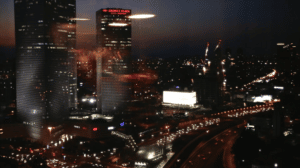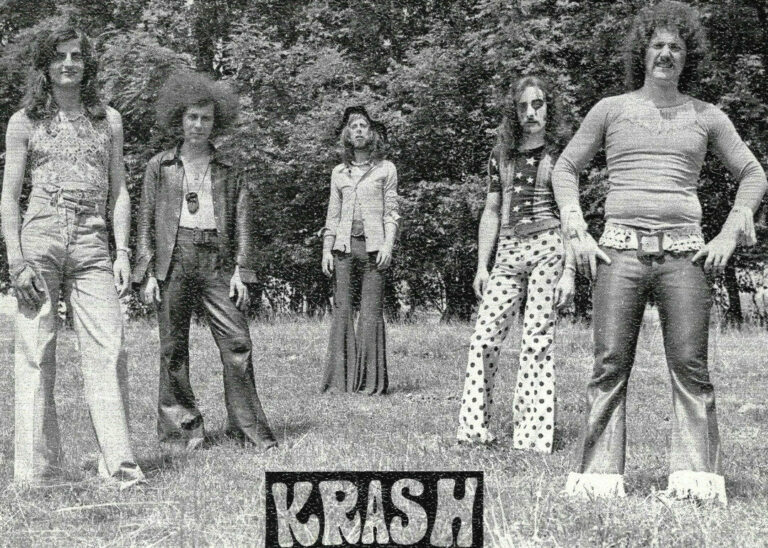Story France
1970
Story-France-Philippe Lawrence-Les Krash
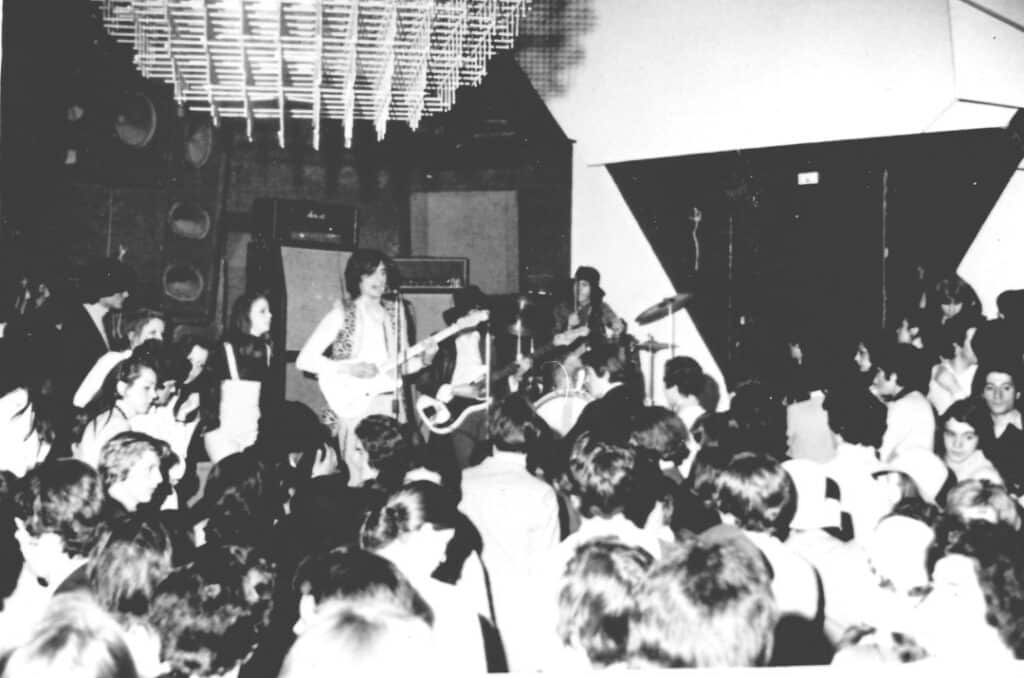
At the genesis of Krash, my two comrades Bernard Sauvage and Mémé Dicarro set the tone for the group, which started under the tutelage of our friend Gilles Pellegrini, Johnny Hallyday’s trumpet player. Several teams of musicians followed one another over the years, always with the same enthusiasm.
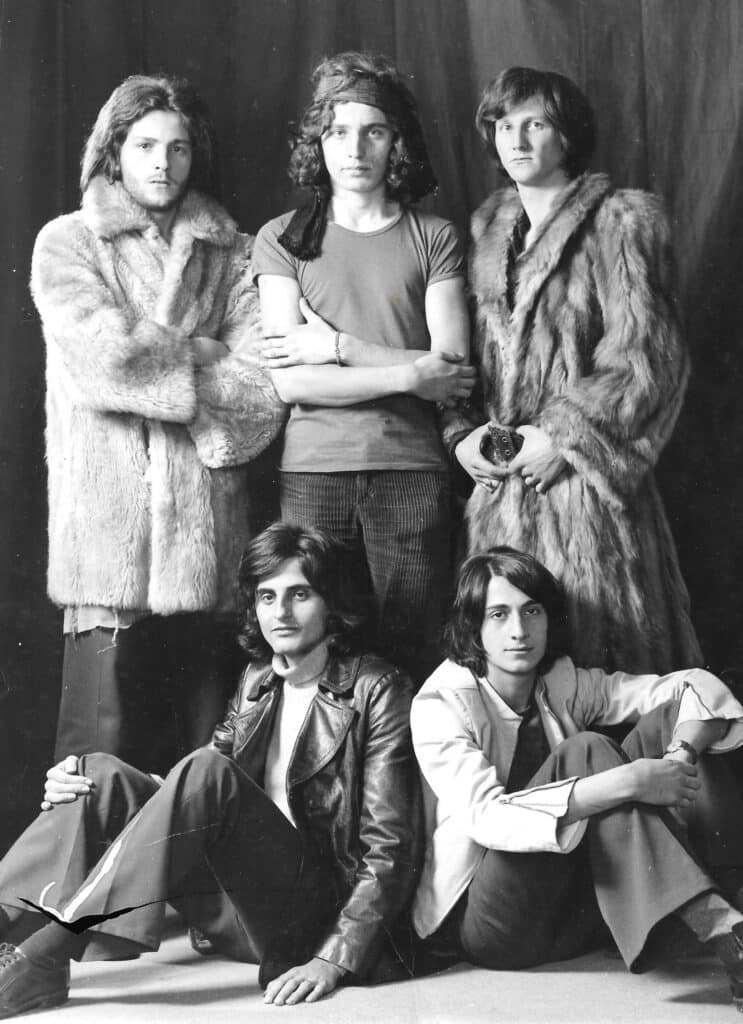
- Vocals and guitar: Philippe Hernandez
- Drums : Jimmy Mastromauro and Dominique Passarotto
- Bass : Laurent Triano
- Organ: Alain Jaunet
- Light show : Kaufman dit “Light show
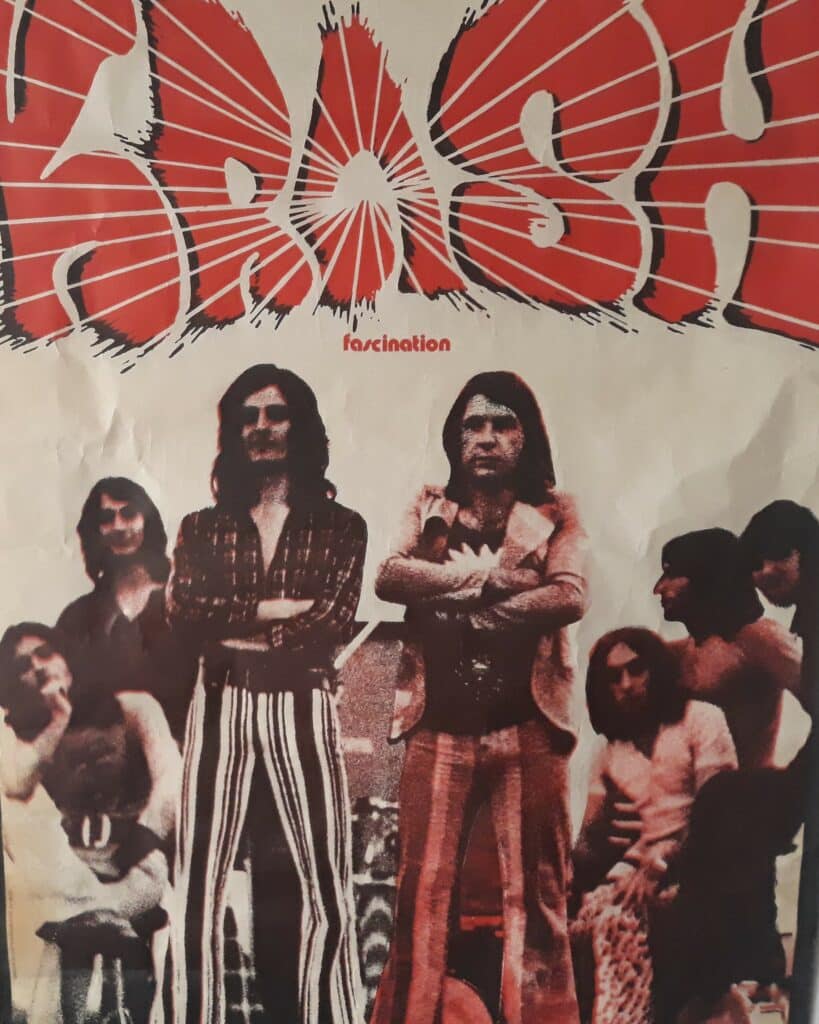
- Vocals : Richard Barnabo / Jean-Pierre Mami
- Guitar : Philippe Hernandez
- Drums : Jimmy Mastromauro
- Bass : Laurent Triano
- Organ : Alain Jaunet
- its : Claude Schintu
- Light show : Francine Hernandez
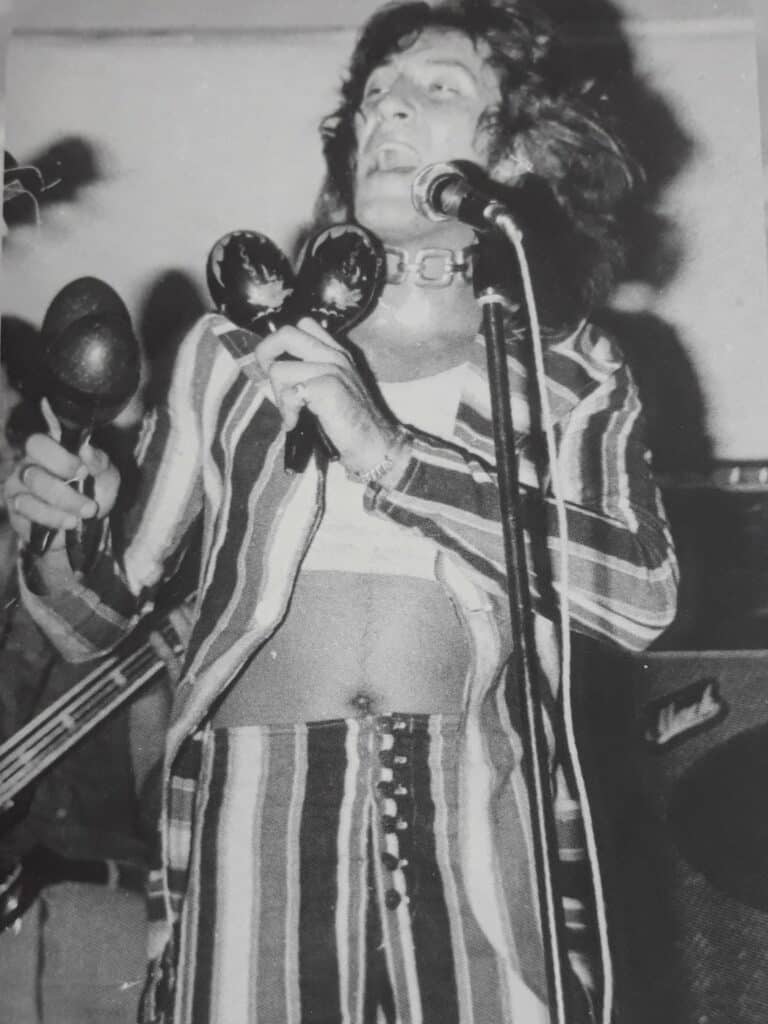
- Vocals and guitar : Philippe Hernandez
- Drums : Gérard Sage
- Bass : Michel Hernandez
- Choir : Michel Pissichio
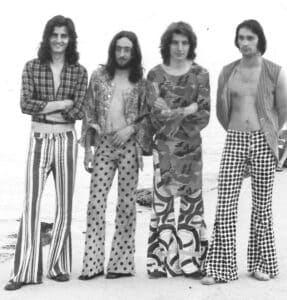
- Vocals and guitar : Philippe Hernandez
- Guitare : Eric Tollet / Grégoire Djevahirdjan / Jean-Jacques Carichon
- Drums : Gérard Sage
- Bass : Michel Hernandez / Joël Troussier
- Organ : Ange Vendra et Didier
- Choir : Michel Pissichio
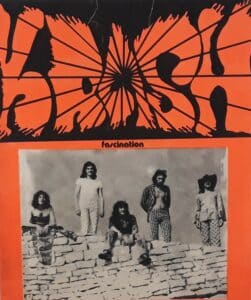
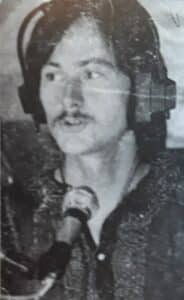
- Vocal: Philippe Hernandez
- Guitar : Philippe Hernandez
- Drums : Gérard Sage
- Bass : Jean Collu
- Organ : Christian Giraud
- Keyboard : Richard Duvernet
- Choir : Michel Pissichio
- Manager : Gérard Morel
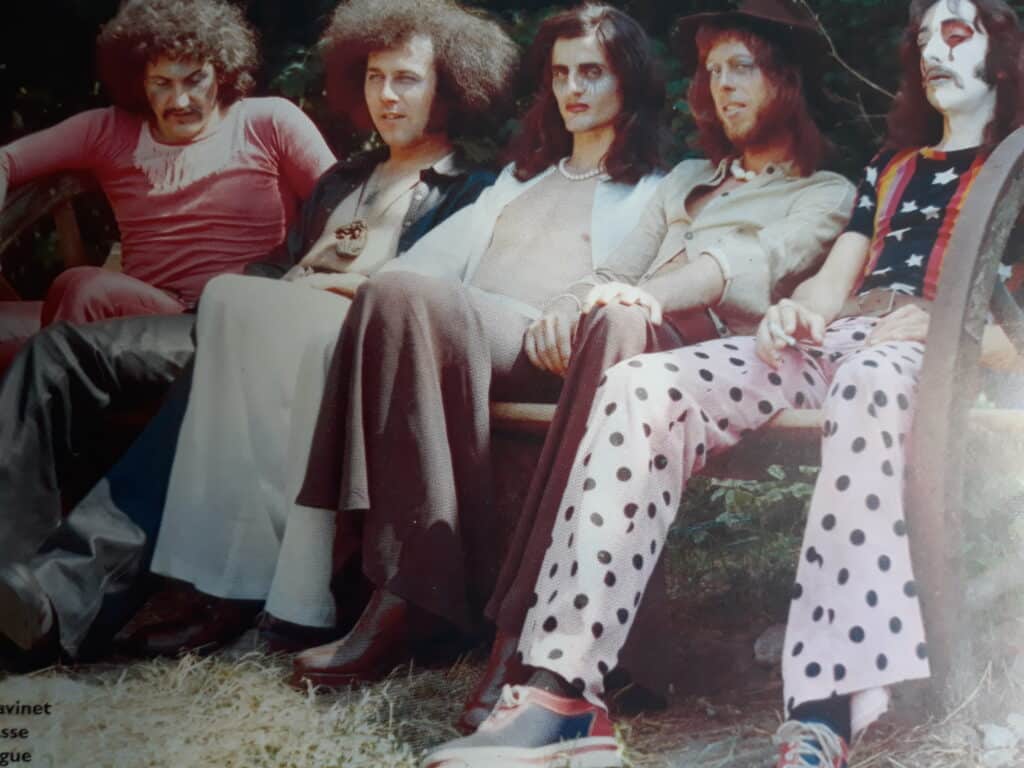

- Vocal: Philippe Hernandez
- Guitar : Marc Cheurlin
- Drums : Bob Lajarige
- Bass : Michel Darnaud
- Organ : Christian Giraud
- Keyboard : Michel Tardieu
- Sound and light : Michel Denis
Bob Lajarige
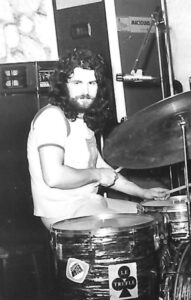
Marc Cheurlin
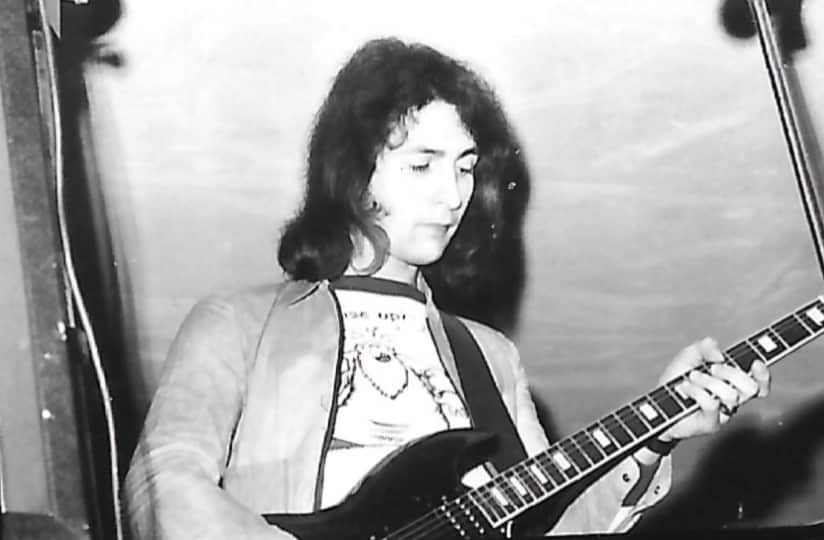
1970 - 1974
Story-France-Philippe-Lawrence-Les Krash
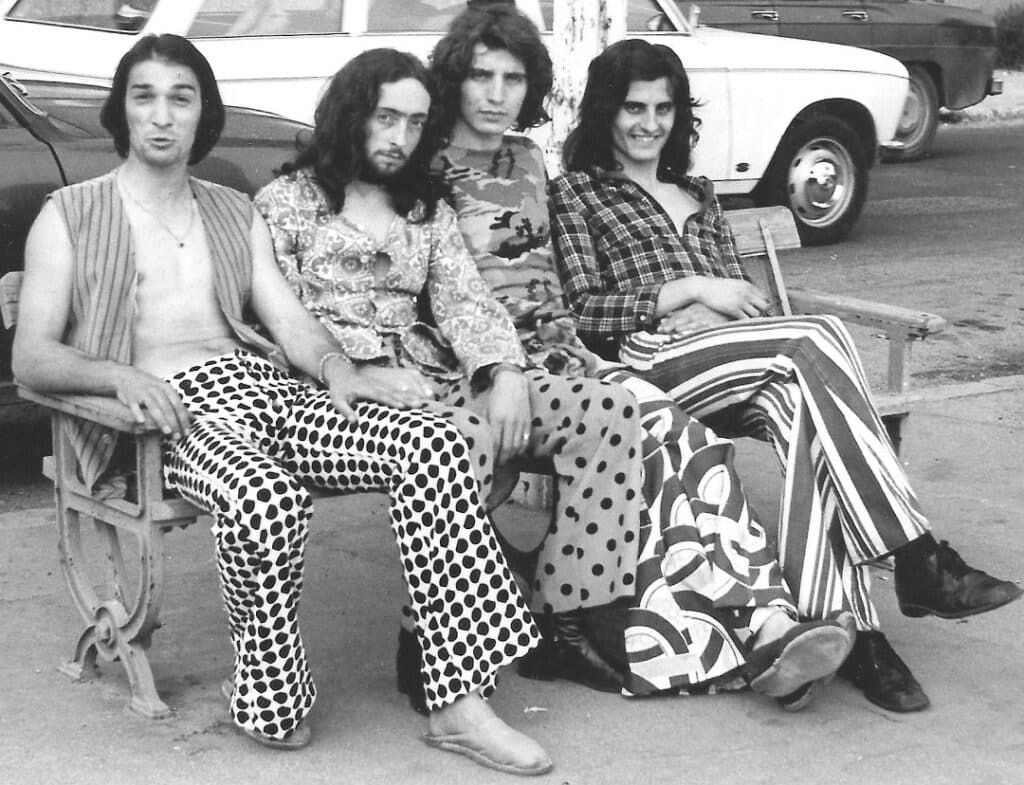
The recording of our first self-produced record, at the very beginning, was the first and only bad studio experience of my life!
We found ourselves in a sort of station hall in the middle of winter, without heating and at least ten metres apart. I can assure you that nothing could happen like that in a studio today! We started to play a few notes to see how we got along. We were given the start and then we tried to play in these conditions, all together, with no feedback, with an abominable echo and we were told “it’s good, it’s good” whereas for us nothing was good. In short, we were not ready.
No balance, nothing, there was a cavernous effect, which was understandable given the size of the room and the distance we were from each other. However, we thought that the soundman would correct the level of the instruments and that we could move on to the singing. But no, that was it, for him it was “in the box”.
We didn’t dare to say anything, we were literally anaesthetised by the ambient cold. As soon as we listened to the sound recordings, we realised that nothing was perfect. We hadn’t done an extraordinary performance, but it didn’t sound anything like our usual performances. The obvious lack of knowledge of the soundman, combined with our inexperience, gave a result that I still regret. When the record was released, the audience who were used to hearing us live did not recognise us, hence our quick decision not to exploit it.
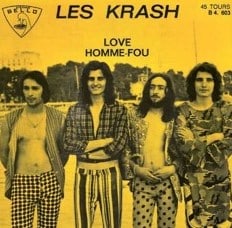
Apart from this episode, I still have many good memories with this band: many trips, many concerts, the most fashionable clubs of the time such as Le Gibus, the Golfe Drouot in Paris, La Playa in Saint Raphaël, the Cap 3000 in Benidorm in Spain, the Black Bird in Geneva in Switzerland with its inflatable track, to name but a few. Many clubs welcomed us.
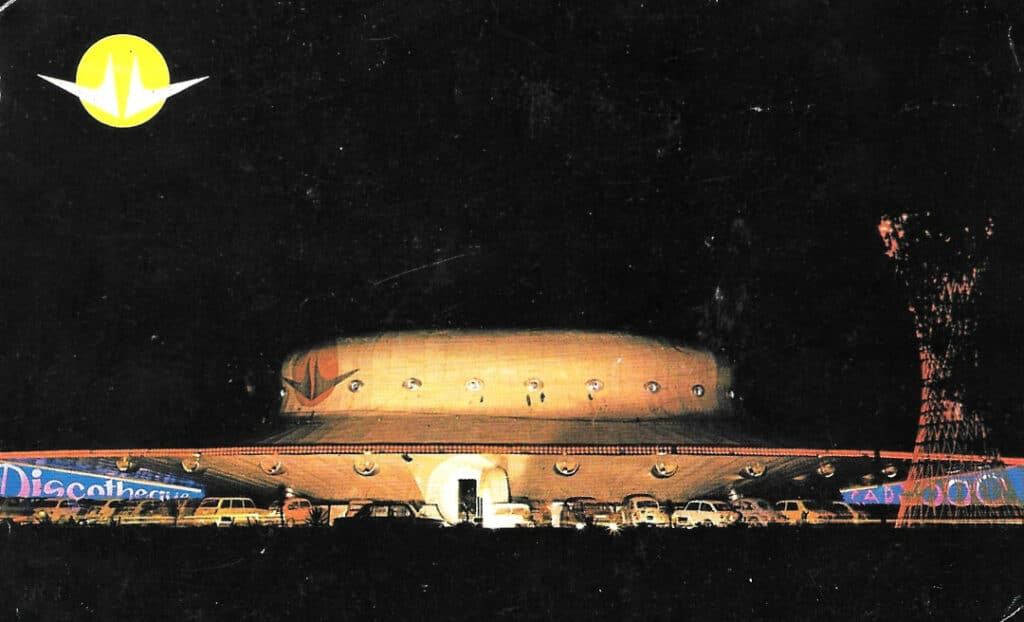
We have been lucky enough to open for famous artists such as Johnny Hallyday, Martin Circus, Triangle and Ange.
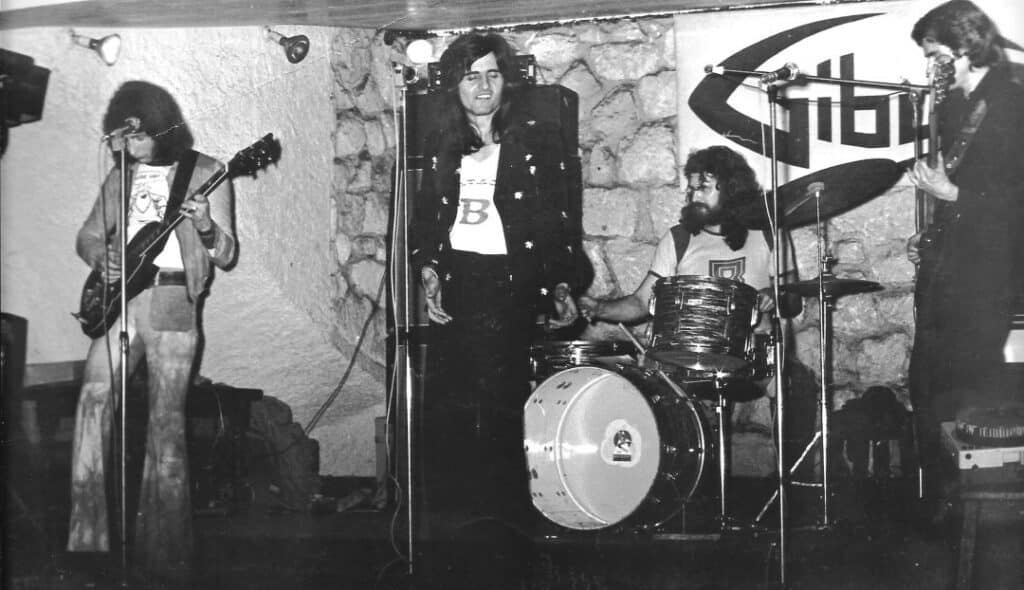
It was not always easy but what a difference with today! The groups were considered as kings, we were received everywhere with a lot of enthusiasm!
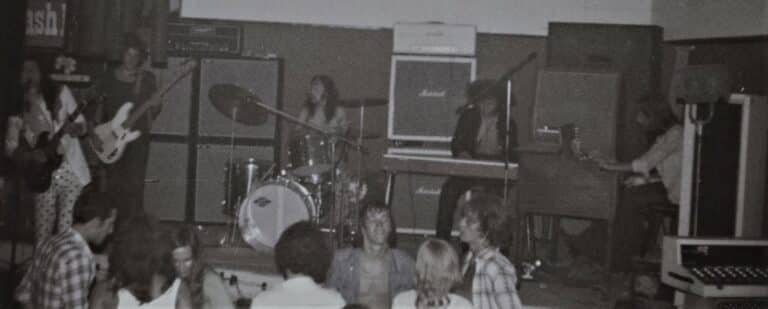
Philippe Lawrence – Jean Collu – Gérard Sage – Richard Duvernet – Christian Giraud
I have great memories of that time! After that, I never got back to the musical craze of the seventies.
There were several shifts in the band until the end of the summer of 1974. We grew technically and musically over time.
We started to be noticed for the fact that we had two drummers, as well as a lighting system called “light show” (which might seem trivial today but at the time was a real revolution because although the technique was really very home-made, the result was really amazing). I think we can say that we contributed to the evolution of rock music in that period.
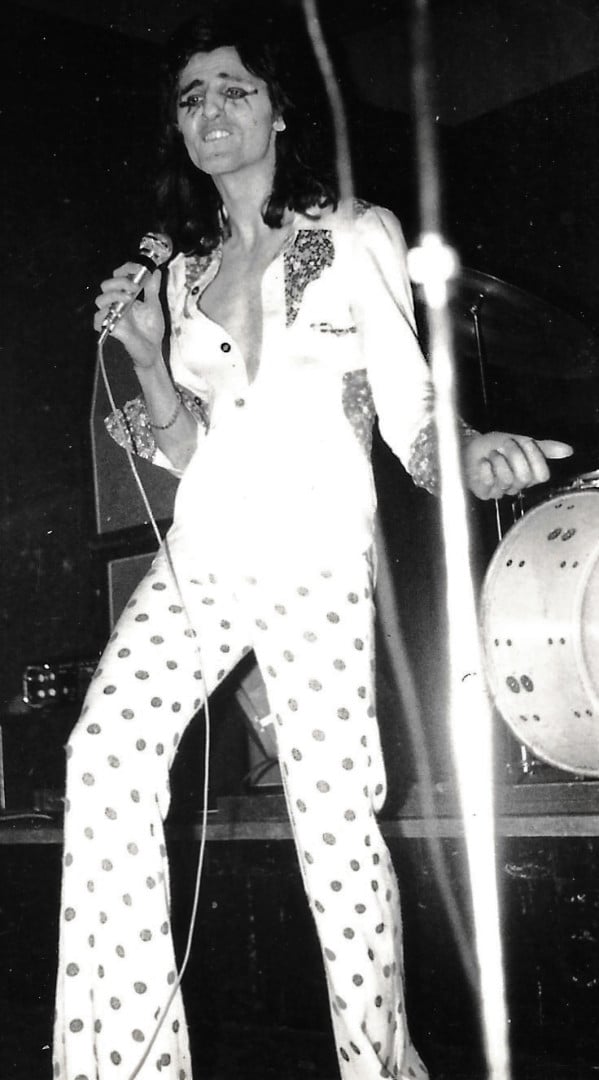
The fact that we were not from Paris was a real handicap for us because we had no contact with the press in the capital. To go to Paris, the journey took 10 to 12 hours, without comfort, but like all the groups of the time, we had a truck and we travelled with our equipment.
We were not afraid to cross France from one end to the other, from Grenoble to Menton and then towards the Pas-de-Calais to go back to Spain.
Sometimes, in order to reach our destination, we travelled hundreds of kilometres, at night, without meeting a single vehicle.
We were not an isolated case since all the artists who were ‘touring’ at that time made long journeys to reach the destinations of their numerous concerts, often without sleeping (with vehicles that today would not seem reliable or comfortable). But for us it meant happiness, we were happy.
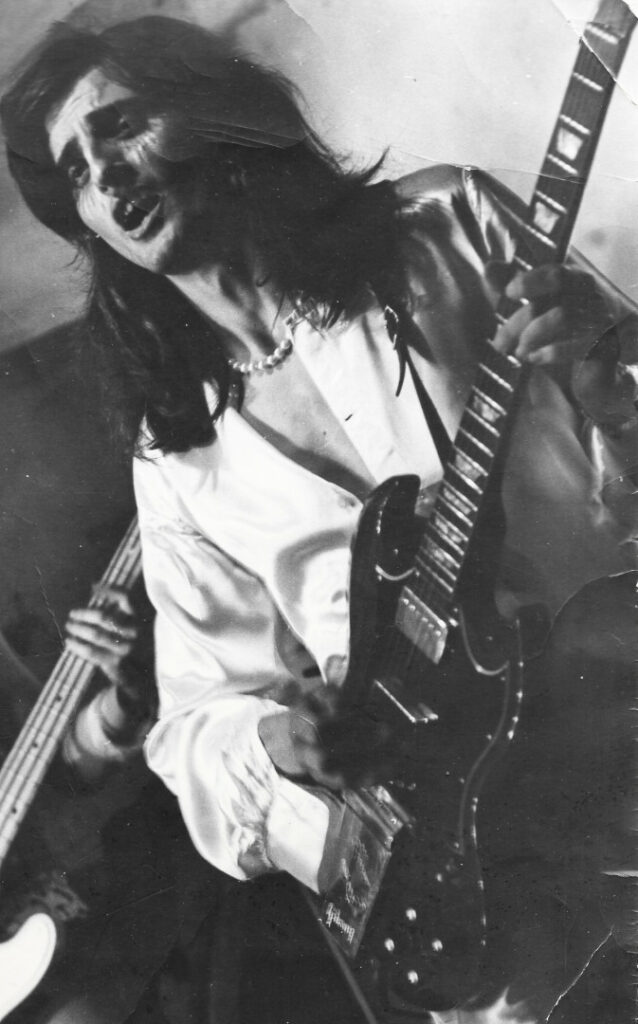
Philippe lawrence
To tell just one anecdote on this subject, I remember that one day, as we were returning from a concert in Juan les Pins on the Côte d’Azur with our truck, we ran out of alternator in the middle of the night, therefore without headlights, on roads with almost no lighting. So we drove without headlights for nearly 300 kilometres, taking turns standing on the running board of the truck to guide the driver! (This seems unimaginable today.)
On our return from Spain, two opportunities were opening up. On the one hand, a signature for the group seemed possible with Flèche, Claude François‘ record company. On the other hand, the producer Aldo Martinez (former bass player in Eddy Mitchell‘s orchestra, then Claude François’ private secretary and finally Paul Lederman’s assistant), who had been introduced to me by Willy Lewis (first drummer of the Chats sauvages and producer) wanted to see me again as soon as we returned from Spain. Artistic differences of opinion within the group meant that I did not take up these opportunities.
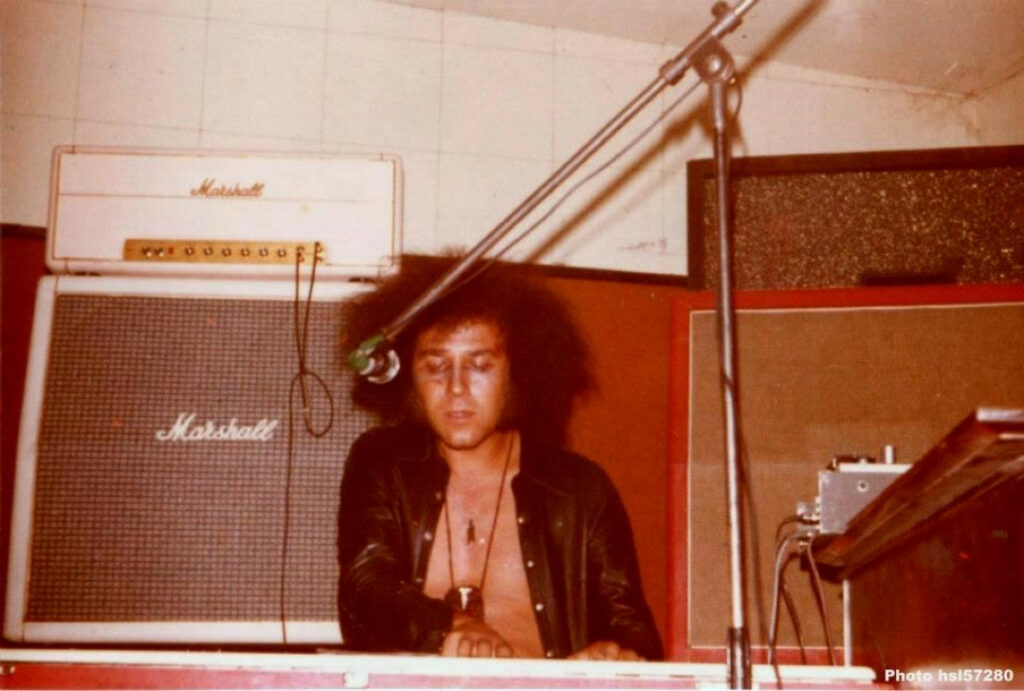
Richard Duvernet
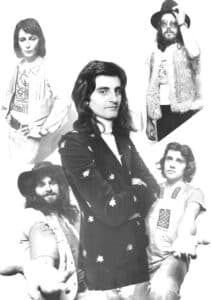
This is our last photo before leaving for Spain in July 74
From left to right :
Marc Cheurlin, Bob Lajarige, Philippe Lawrence, Michel Tardieu, Michel Darnaud.
It was the time when when we crossed the Spanish border, the customs officers made us go into the customs to ask for an autograph of our posters! The Spanish restaurant owners raised their prices when they saw us coming!
1975
Story-France-Philippe Lawrence
J’emmènerai Corinne
The history of this song is quite complex. The beginnings of the composition of this song started during our tour in Spain in 1974 with the Krash.
When we returned to France, I moved to Paris in early 1975. For a while I lived with my friends Jean-Claude Gozzo and the singer Linda Keel, then I moved on to our tour manager Roger Piranian who welcomed me in his home. At that time, he was in charge of the singers Vince Taylor, Nicole Croisille, Magic Circus, Vigon, … During this period, I had the opportunity to work with the company “Régie Scène” with whom I toured with the group Magma. I had the pleasure to meet the violinist Didier Lockwood, the bassist Bernard Paganotti, … I already knew Christian Wander, drummer and leader of the band Magma, because he used to come and jam with us when we played at the Parisian discotheque Gibus Club.
I composed the music for this song and the author Jacques Demarny (author of many successful songs for Enrico Macias, Gérard Lenorman and many others) wrote the lyrics. Indeed, he had been introduced to me at the “Allô Musique” publishing house by the producer Mickaël Haubrich. In addition, it was my friend the singer FR David who helped me to structure this title to give it a certain commercial content.
The recordings were made in several episodes. The first version was produced by producer Willy Lewis in his Paris studio, the second version by producer Patrick Roche at “Studio Saint Jérôme” in Montmartre, and the final version, with vocals and mixing, at “Studio d’Antibes” under the direction of producer Mickaël Haubrich.
When the time came to record this song, I, a guitarist and singer who came from a rock background and was used to performing on stage with a certain success wherever the “Krash” band played, was impressed by the idea of being in a studio where successful artists were recording. Singing with all the rules and technical constraints that I didn’t know and slipping into the skin of a variety singer of that time was not an easy thing to do.
This song was only published in the 2000s, as part of the book entitled “Galaxie 70” that I wrote to retrace the history of music in Isère in the 70s and 80s and which was accompanied by a compilation of songs by Isère artists such as Christian Delagrange, Michel Fugain, etc…
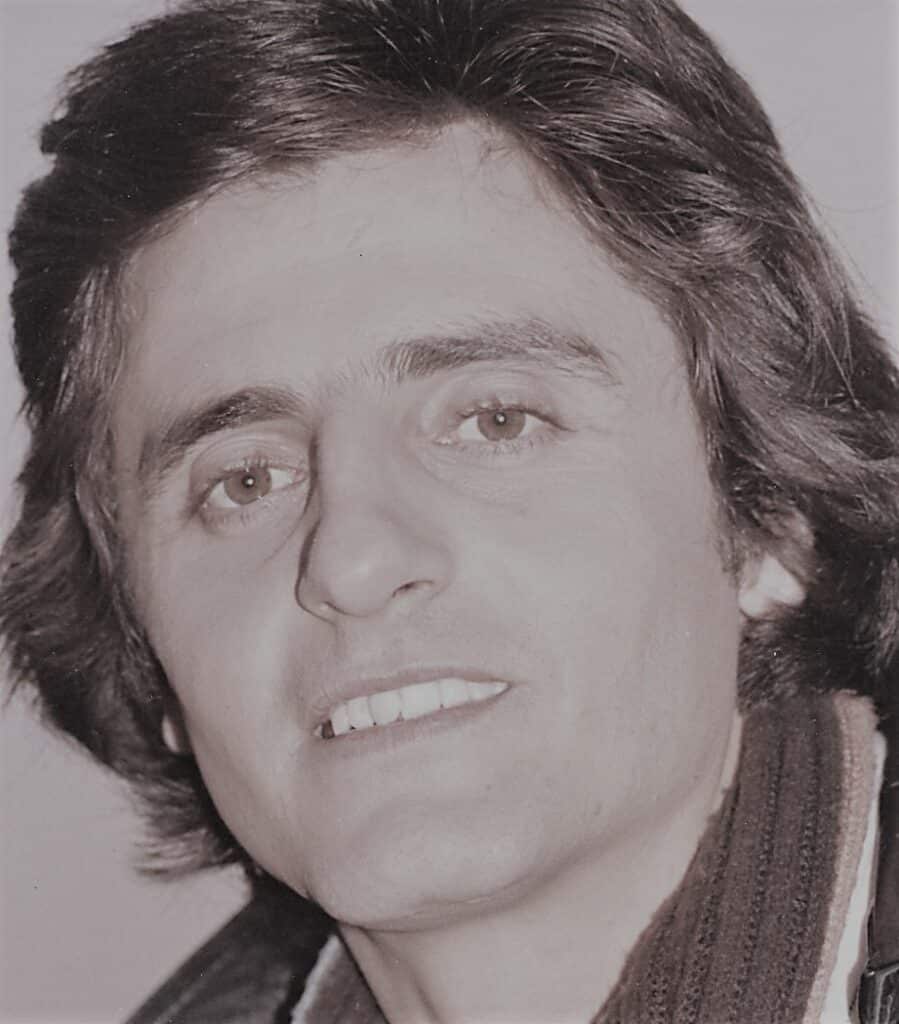
- Production: Mickaël Haubrich / Willy Lewis
- Composer: Philippe Hernandez
- Author: Jacques Demarny
- Publishing : Oxo
- Musique / Warner Chapell
- Recordings : Studio Willy Lewis / Studio St Jérome
- Mixing : Studio d’Antibes
- Guitar: Slim Pezin
- Pianist :
- Drums :
- Strings: Opera violins
- Choir : Liliane Davis
- Bass : Christian Padovan
1978
Story-France-Philippe Lawrence -Chris Comet
In 1978, my pianist friend Jean-Pierre Ducos, alias Chris Comet, keyboardist for the Parisian band “Stratagème”, called me in a hurry to ask me to replace their bassist who had just bailed on a concert. At the time, I was a guitarist and I had never played bass. What’s more, I didn’t have one.
Chris insisted that I take up the challenge as we already had a very good friendship. I quickly accepted and enjoyed the experience. After that, I did about ten concerts. Although the group wanted me to stay, I couldn’t continue this Parisian adventure because I didn’t have enough income.
So I went back to Grenoble where I composed the music for the song “Des Motos et Des Hommes”.
Afterwards, Chris called me to ask me to come and try out in Paris as a singer in the group “Froog” that he had just joined. Their singer had just left for other adventures… Having already signed the song ” Des Motos et Des Hommes ” with ” AB Productions “, I had to refuse this proposition.
My friend and accomplice Chris has been living in the United States since 1990, where he has a brilliant career as a musician and producer.
In January and February 2020, Chris Comet was elected artist of the month on MTV USA.
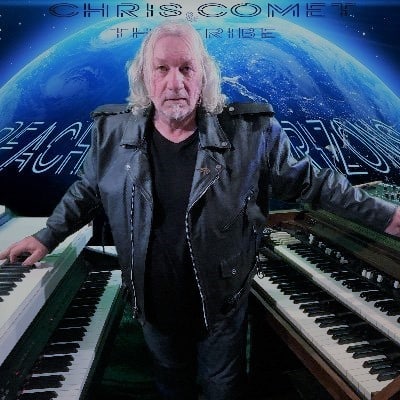
1979
Story-France-Philippe Lawrence
Des motos et des hommes
It took a long time for this song to see the light of day. The first version, produced by Michaël Aubrich, was recorded at the “Studio d’Antibes” with Jacob Desvarieux, guitarist and founder of the group Kassav, and his musician friends from Marseille.
The final version was recorded under the direction of Fernand Boudou, Claude François’ pianist, who put together a great team of musicians and brought in singer Patrick Hernandez for the backing vocals. The recording was done at the “Studio Ramsès” in Paris where I was lucky enough to meet the mythical actor Patrick Dewaere. We sat face to face in the lounge where artists could relax between recording sessions. We exchanged a few words of courtesy and little smiles. He was a very discreet guy, as I was myself.
Then I met Jean-Luc Azoulay, co-founder of AB Productions, with whom I signed my first contract. Everything was going well, Jean-Luc Azoulay signed the distribution deal with Polydor, but at the time of the release of the record, we found ourselves in the middle of a strike by the television unions, a strike that unfortunately lasted a long time, which made it difficult to promote the record, which had been planned well in advance.
After a while, I asked “AB productions” to give me back my freedom to move on to other horizons. With hindsight, I think I didn’t make the right choice because my relationship with Jean-Luc Azoulay was excellent and he was very warm. When I told him I was leaving, I felt that he would have preferred me to stay but that he accepted my decision so that I could move on.
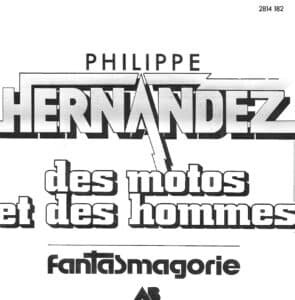
- Production : AB productions
- Release : AB Polydor
- Format : 45 rpm
- Country : France
- Recording of the demos : Studio d’Antibes
- Guitar: Jacob Desvarieux
- Bass, Drums: Jacob’s musician friends from Marseille
- Artistic direction: Michael Haubrich
- Recording and Mixing : Studio Ramses
- Sound engineer : Ramon Pipin Musicians
- Drums: Benjamin Cohen
- Bass: Michel Assa
- Keyboards : Fernand Boudou
- Guitar : Ramon Pipin
- Chorus : Patrick Hernandez
- Pedal style : Claude Samart
- Artistic direction : Fernand Boudou
1981
Story-France-Philippe Lawrence
Bourboule
Following my rock career, I composed “La Bourboule”. Although it went against the trend of that period, the song obtained a certain success thanks to TV and radio appearances: Danièle Gilbert’s invitation to her show “Midi Première”, the programming on Sud Radio supported by my friend Gérard Morel, also host of “la Vie à Plein Temps” on Antenne 2. Concerning the discotheques, my publishers Jean-Paul Laleu and ” Katia Promotion ” made the forcing to carry out the promotion of this song. I was invited by radio ” NRJ ” at its beginning with the Forbans and the mythical host of the radio ” Mitsou “.
During the 1981 summer tour, I had the privilege of being presented by Gérard Morel on the podium of ” Sud Radio ” where the famous singer Carlos was performing. My friend Claude, the producer, also negotiated a 30-minute slot in the discotheques each evening to promote the record. Carlos, his musicians and Gérard Morel would come along to support me. It would be a “sure hit” as they used to say at the time. What a dream time, the artists were received as one can no longer imagine! There was a great respect for musicians in those days.
At the end of the summer, I moved back to Paris where I met the conductor “René Coll” who accompanied Michel Sardou. We stayed in the same hotel with all his musicians. We quickly became friends. It was not easy for us provincials to live in Paris. Often, in the evening, I would wait for René to come back from rehearsals so that I could have dinner with him and spend some warm moments.
A few months later, my press attaché asked me to come and live with her on Boulevard des Invalides. I was able to see film and television actresses who came for meetings. What a change from my little hotel room! However, I finally decided to go back to Grenoble so that I could get back to composing again.
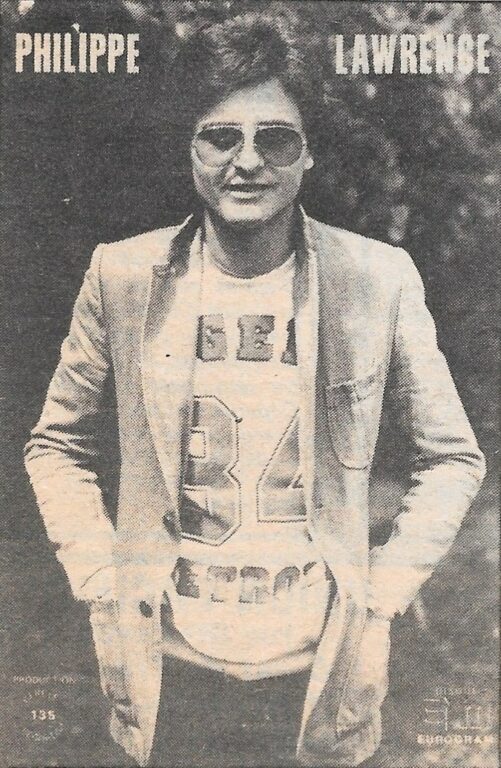
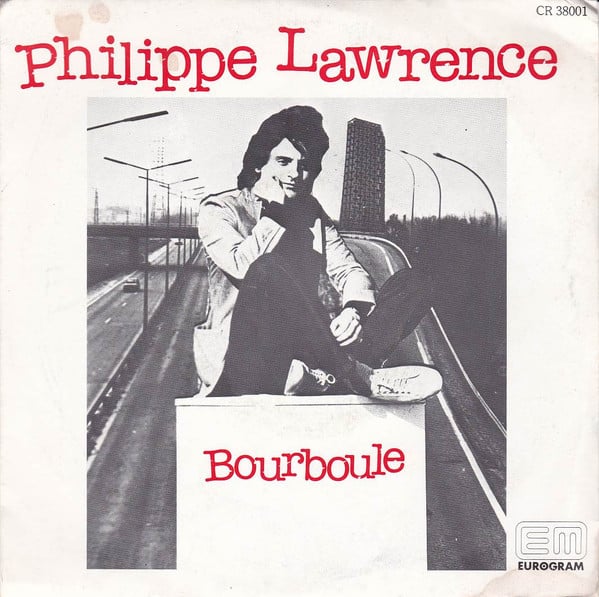
- Production: Cercle 135/Claude Schintu
- Release: 1981 on Cercle Records 135 Eurogram (CR 38001)
- Format: 45 rpm / 17cm / SP
- Country: France
- Composer : Philippe Hernandez
- Author : Jean-Claude Champon
B side: Hello la Routine, Philippe Hernandez - Recordings : Studio Caroline
- Sound engineers: Jacky Regan and Nicolas Garin
- Artistic direction: Fernand Boudou
- Guitar : Roger Saez
- Drums : Benjamin Cohen
- Bass : Michel Assa
- Saxophone : Michel Gaucher
- Keyboard : Fernand Boudou
- Violin : ?
1982
Ras le bol d’être un pigeon
A few months later, Jacques Labalme, producer, took over from Claude Schintu. We quickly followed up with “Ras le Bol d’être un Pigeon” to take advantage of the beginning of the promotional impact that the title “La Bourboule” had generated. It was the beginning of free radios, they had no rules dictated by Parisian programming. Each radio station did what it wanted, if they liked the title, they played it without any restrictions. I was invited to many radio stations throughout France where we were programmed at least once or twice a day.
In Isère, the free radio stations played the song widely, probably because I was a local boy! I had the pleasure of being invited on FR3 in the very popular programme “Les Jeux de 20 heures“. The text of “Ras le bol d’être un pigeon” evoked Brazil and Rio Janeiro, it was surely premonitory…

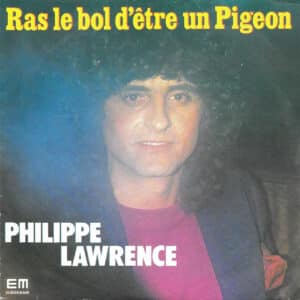
- Production : Jacques Labalme
- Release : 1982 by EM Eurogram (PER 17006)
- Format : 45 rpm / 17cm / SP
- Country : France
- Side A : Ras le Bol d’être un Pigeon, Philippe Hernandez
- Side B : Planète Eucalyptus, Philippe Hernandez
- Recordings :
- FA : Studio Caroline
- Sound engineer : Nicolas Garin
- FB : Studio Mélusine
- Engineer : Claude Millau
- Drums: Jean-Luc Lopez
- Bass :
- Keyboards: Chris Comet (Jean-Pierre Ducos), Dany Daras
- FB Synthesizer : Matéo Luppo
- Guitar : Daniel Fratini, Christophe Aubert, André Bailly
1985
The reason why
This new adventure began with my friend Bernard Nucci, nephew of the Minister of Cooperation at the time. Seduced by the demos of the songs “The Reason Why” and “One More Time”, he convinced the CEO of the company RMO, Marc Braillon, a huge and well-known sponsor in the 80s, of the interest of producing this record. Marc was also the president of the Grenoble professional football team, but also the sponsor of the RMO cycling team, boxing champion René Jacquot, cyclist Charlie Mottet, and many others. It was not easy because some people in the company were not in favour of this investment. But finally, with an unlimited budget on the table, we went into battle, aiming to make an international production.
Initially, we called on my childhood and neighbourhood friend Roger Rizitelli, known as ‘Bunny‘, to put the team together. He was the drummer for Jean-Michel Jarre‘s Space Art, Christophe and many others. The song “Les Mots Bleus” the drummer is him, and almost all the songs of Christophe. He was exceptional. I was probably the one who introduced him to his first band at the time when he didn’t even have drums yet. He was still playing on oil cans, given to him by another local garage owner and mutual friend Jean Claude Schintu, before he played on a real drum kit, he must have been between 13 and 15.
Roger Rizzitelli, known as Bunny Studio Ferber
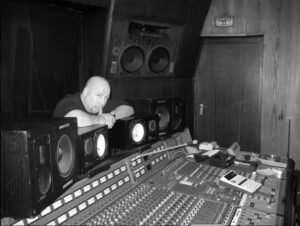
Roger Rizzitelli, known as Bunny
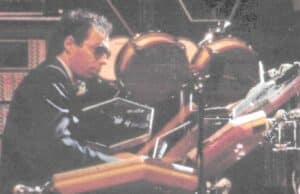
Roger chose the musicians who best suited the project. It’s a pity he’s no longer around, 40 years later the song is still played in some countries and Brazilian fans regularly post the tracks on Youtube with nostalgia. The musicians, the studios, the engineers, everything was “top”. The arranger was Paul-Jean Borowski, another Grenoble native, former founder of the mythical group “Les Martin Circus“. Roger called on Lana Sébastian, who had many hits and discovered Jean-Luc Lahaye, for the artistic direction. We made two songs that took off a few years later. These two songs were part of the soundtracks Ti Ti Ti and Top Model, two very successful TV series in Brazil, and of 5 compilations that sold almost 2 million copies.
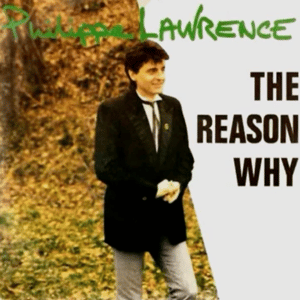
- Production : Roc Eole / RMO, Bernard Nucci, Marc Braillon
- Recordings : Studio Willy Lewis
- Sound engineer : Jean louis Proust
- Artistic director : Lana Sébastian
- Studio Ferber : Sound engineer Paul Semama
- Mixing : Studio Davout
- Release : Celluloid CEL 1932
- Format : 45 tours
- Country : France
- Keyboard and choir : Paul-Jean Borowski
- Drums programmation : Roger Rizitelli
- Saxophone : Alain Hatot
- Bass : Bernard Paganotti
- Guitar : Patrice Tison, Philippe Hernandez
- Side A : Philippe et Francine Hernandez
- Side B : Philippe et Francine Hernandez
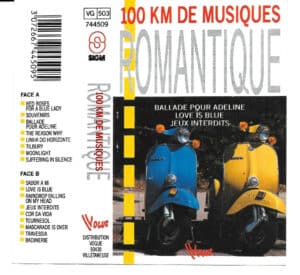
- Compilation: 100 kms de Musique Romantique
- Production : Roc Eole / RMO, Bernard Nucci, Marc Braillon
- Release : Sigla / Vogue
- Format : cassette
- Country : France
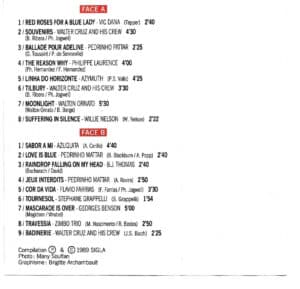
1987
Montagne
Later, Jacques Labalme asked me to compose the music for the television magazine “Montagne” broadcast on FR 3 and to produce “L’inconnue du Nord Express” which I had just composed.

- Production : Jacques Labalme
- Recording : Philippe Hernandez studio
- Release : 1987 Labalme / Socadisc S 1021
- Format : 45 rpm
- Country : France
- A/B side : Philippe Hernandez
1987
L’inconnue du Nord Express
“L’Inconnue du Nord Express” is the incredible story of a song destined for success. Michel Bernholc, the extraordinary pianist and arranger for Michel Berger and France Gall, co-produced the record with Jacques Labalme. It was also the meeting with Paul Benz, the head of Island France.
All the lights were on! Once the recording was finished, Jacques Labalme began the tour of the record companies. Carrère wanted to sign, we had several offers, all of them in advance, and Warner won. The problem was that it took almost a year before the record was scheduled for release. I had given up hope and I told my producer Jacques Labalme, probably excessively but thoughtfully, because I already knew the business, the sound trends, the rhythmic evolutions, the market and I wanted to warn him that waiting too long would be fatal.
After long months of waiting, which had made me lose hope and confidence, I finally had the opportunity to do a television show with Patrick Roy, but my performance was not great. I must admit that the conditions were particularly difficult: a trip from Grenoble to Paris very early in the morning, with hours of waiting in the wings (in fact, there were many of us artists on several shows, each in turn on the same day). I didn’t have the opportunity to do any other TV show with this song. I could easily have been given another chance to defend this song, but that was not the case. Michel Bernholc, and his producer friends to whom he had played the song, were convinced that it was a potential hit. Unfortunately it was sacrificed, for reasons that escape us. Michel Bernholc encouraged me to continue and I thank him for that. I pay tribute to this great artist who was also my friend and who unfortunately left us too soon.

- Production : Jacques Labalme/ Michel Bernholc
- Recordings : Studio B Side
- Sound engineers : Michel Bernholc
- Mixing : Studio des Dames
- Recordings : Christophe Marais
- Assistant : Jean-Yves Pouilloux
- Label : Labalme / WEA 248 143 7
- Format : 45 tours
- Country : France
- Release : 1987

- Keyboards and arrangements : Michel Bernholc
- Drums programming : François Bouchery for Korg France
- Cover art : Erick IFERGAN
- Side A : Philippe et Francine Hernandez / Michel Carlyle
- Side B : Philippe Hernandez / Claude Isola
While I was moping around waiting for the release of “L’Inconnue du Nord Express”, my friend Dominique Buscail, publisher and producer of Léo Ferré, Touré Kunda, Nino Ferrer and also of my two titles “The Reason Why” and “One More Time”, co-founder of the Buda musique and EPM labels, Blue Silver and Free Bird, had not remained inactive. He understood that the wait that had been imposed on me up to then could not be renewed.
Some time before his death, during a meal at his home, when I thought that everything was over for my projects, he announced that he had negotiated the release of my songs “The Reason Why” and “One More Time” with the Brazilian television channel TV Globo.
I just had time to learn that these two songs had been released in South America, that they were very popular, and then Dominique Buscail unfortunately passed away. I knew that Bernard Nucci and Marc Braillon had talked about me going to Brazil for promotion, but Dominique had left us, so the machine was set in motion without me for the Brazilian promotion.
Compositions and productions appendices
1987
Je suis comme ça
In 1987, I composed the song “Je suis comme ça”. With this song, Béatrice Rostin took part, between 1988 and 1989, in many television and radio programs : “La Classe” and “Matin Bonheur” on Antenne 2, “Puisque vous êtes chez vous” on TF1, “40° à l’ombre“, “Trois première”, “On va gagner” on FR3, Journaux Télévisés on FR3 Alpes, FR3 Picardie and FR3 Normandie, …
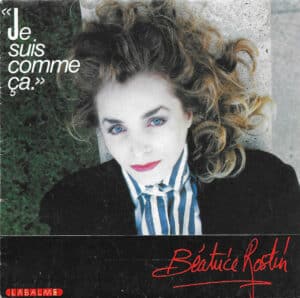
- Production: Jacques Labalme for the mix and voice recordings and Philippe Hernandez for the soundtrack recording
- Label : Labalme / WEA 781 502
- Format : 45 tours
- Country : France
- Release : 1987
- Recordings : Studio Clos Fleury et Studio B side
- Mixing : Studio des Dames / Dominique Poncet
- Music : Philippe Hernandez
- Author : Claude Isola
- Studio Clos Fleury
- Drums : Programming Danny Darras
- Keyboard : Dany Darras
- Guitar : Basile Leroux
Funny funny
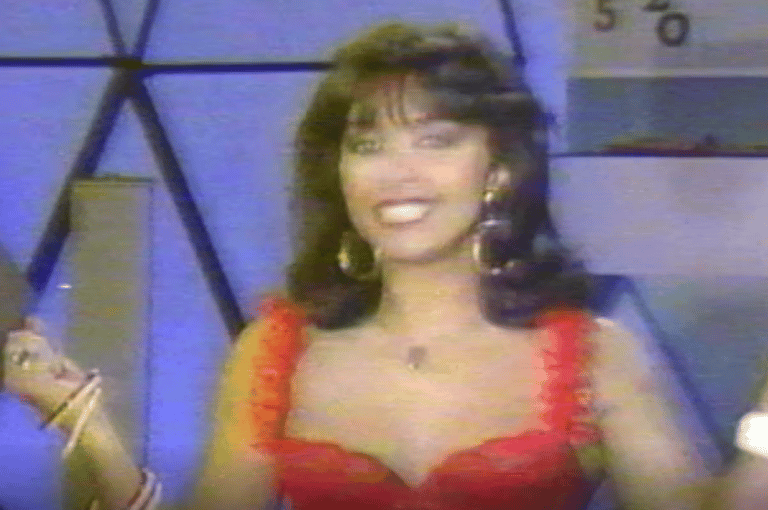
Coral
- Production : Jacques Labalme
- Production : 1987
- Studio B side : Michel Bernholc
- Mixing B side : Michel Bernholc
- Keyboards and programming : Michel Bernholc
- Music : Philippe Hernandez
- Author: Claude Isola
1988
Je te veux toute à moi
In 1988, I wrote the song “Je te veux toute à moi”, which I then produced with my friend Patrick Carrier, producer of the singer Gilles Sinclair who sang the French theme song for the series Santa Barbara, and tour manager Age tendre.
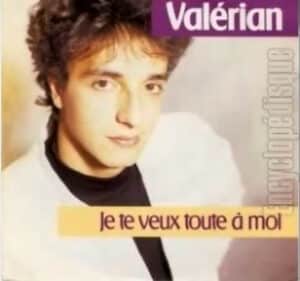
- Production : Philippe Hernandez / Patrick Carrier
- Recordings : Studio B side / Michel Bernholc
- Label : Victoria records/ EMI – 2030107
- Format : Vinyle 7 ‘’ 45 tours RPM single
- Country : France
- Release : 1988
- Mixing : Studio B side / Michel Bernholc
- Drums : programmation Michel Bernholc
- Keyboard : Michel Bernholc
- Guitar : Basile Leroux
- Bass : Bernard Paganotti
- Saxophone : Patrick Bourgoin
- Music : Philippe Hernandez
- Author : Claude Isola
2000
If you want to get high
In 2000, I composed the song “If you want to get high” which I produced with Stéphane Prayas, 2012 Flyboard World Champion, 3 times French Champion and 2 times Free Style Jet Ski World Vice-Champion.
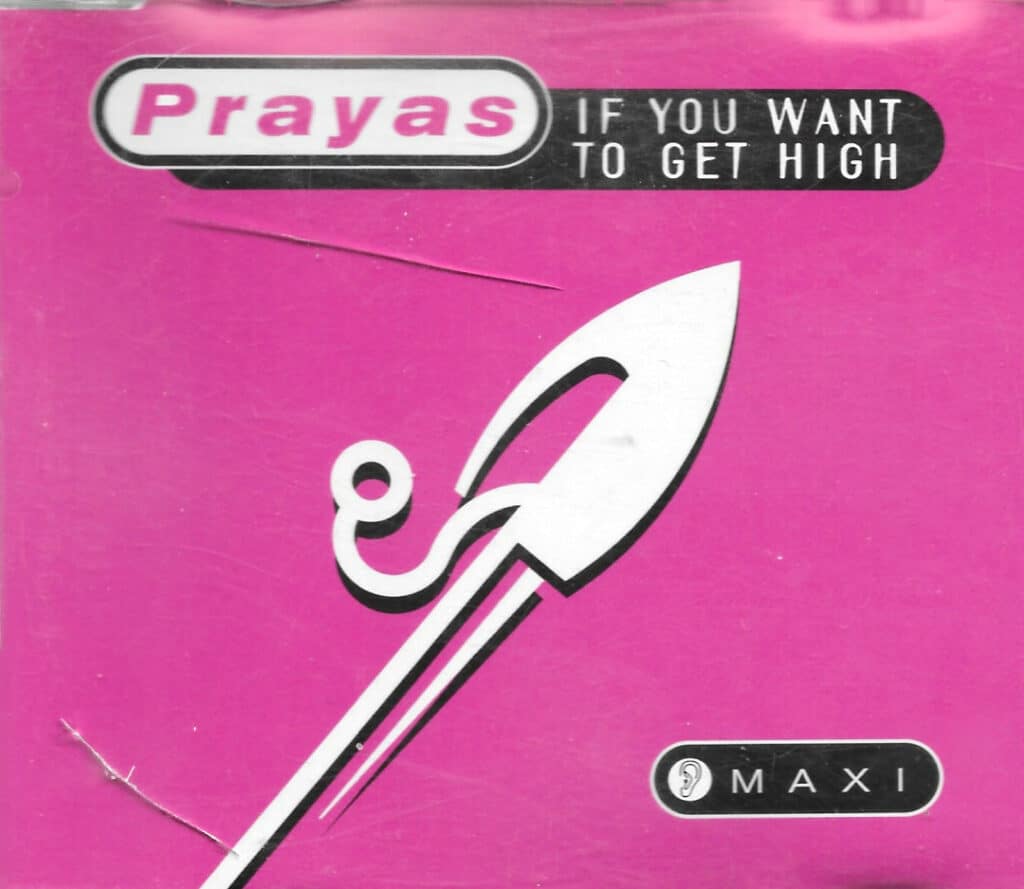
- Production : Philippe Hernandez / Prayas
- Recordings : HPH productions
- Mixing : Studio Muzika
- Ingineer : Beneto Rossi Jean Philippe
- Label : EMI France 7243 8 88537 6
- Format : CD et vinyl
- Country : France
- Release date : 2000
- Keyboard: Philippe Hernandez
- Programming and arrangements : Philippe Hernandez
- Music : Philippe Hernandez
- Author : Stéphane Prayas
2014
Hypnotic
In 2014, the city of Grenoble entrusted me with the musical production for the 14th of July fireworks show, which will give rise to the composition of 16 tracks that will later be gathered in the album entitled “Hypnotic”. For the occasion, my friend Olivier Martin, one of the kings of the dance floor on the saxophone, gave me the pleasure of his participation.
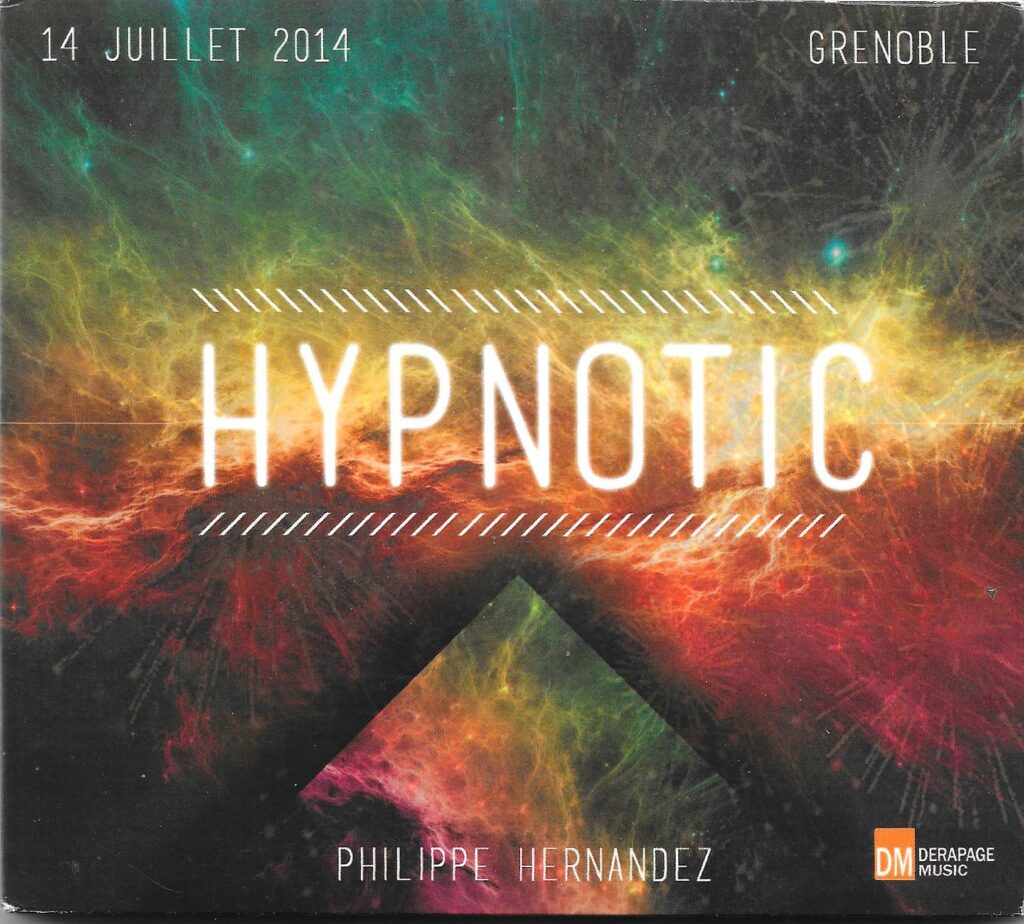
- Production : DERAPAGE MUSIC
- Recording / mixing : Philippe Hernandez
- Keyboards and Programming: Philippe Hernandez
- Music : Philippe Hernandez
- Saxophone : Oliver Martin
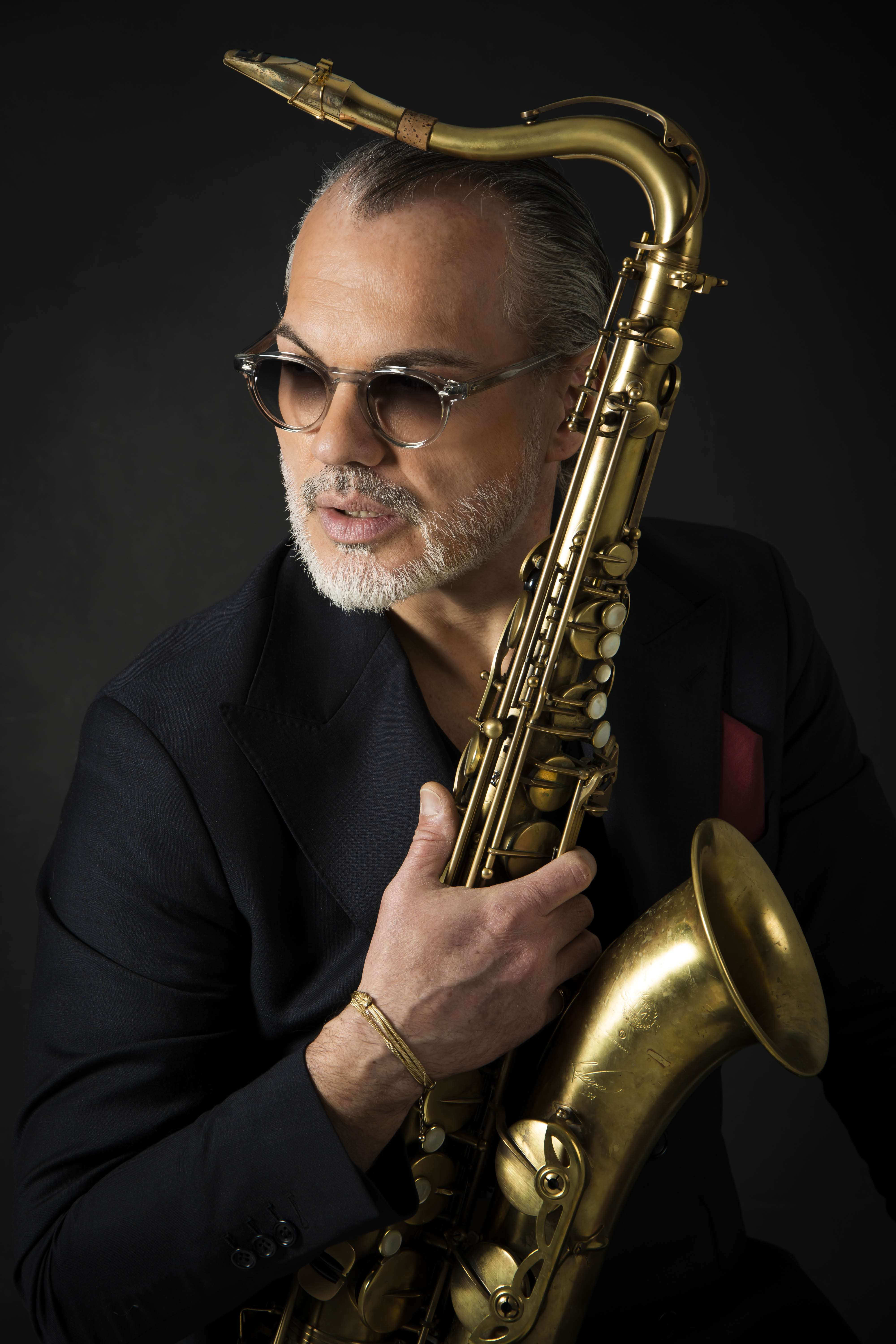
2018
Carina
In 2018, I composed the four songs of the maxi single “Carina” of the band W.Y.L, which I had created and in which I played bass. This single was produced by the company “Ligne 10” composed of Philippe Girard Buttoz (former CEO and founder of the company Digigram, specialised in audio design), Antoine Mucciante (CEO of the company Espace social), Patrick Charra (architect and CEO of the company Stendh’Arch) and myself. Thanks to a strong promotion campaign on Google and Facebook, the title “Carina” has exceeded one million views.

- Production : LIGNE 10
Philippe Girard-Buttoz, Antoine Mucciante, Patrick Charra and Philippe Hernandez - Recording and direction: Christian Morfin
- Artistic director : Nicolas Gauthier
- Label : Moonlight-Mainlight / Believe
- Format : CD Maxi
- Country: France
- Release date : 2018
- Music : Philippe Hernandez
- Author : Laura Ajello
- Keyboards and Programming : Philippe Hernandez, Christian Morfin
- Singing : Laura Ajello
- Drums: Tommy Rizitelli, Thomas Parra
- Bass: Philippe Hernandez
- Keyboards: Philippe Hernandez, Eric Capone and Richard Vecchi
- Strings: Vivika Sapori, Nicolas Seigle and Eric Capone
- Guitar : Christian Morfin, Antoine Mucciante, Damien Dadat, Prados Renaud, Prados Bryan
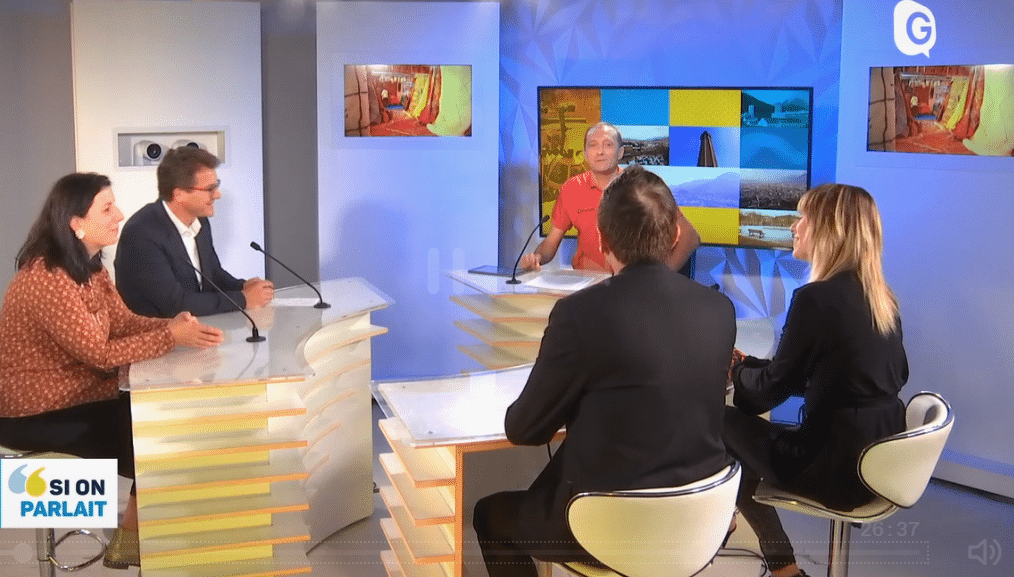
Let’s talk “TV Grenoble”
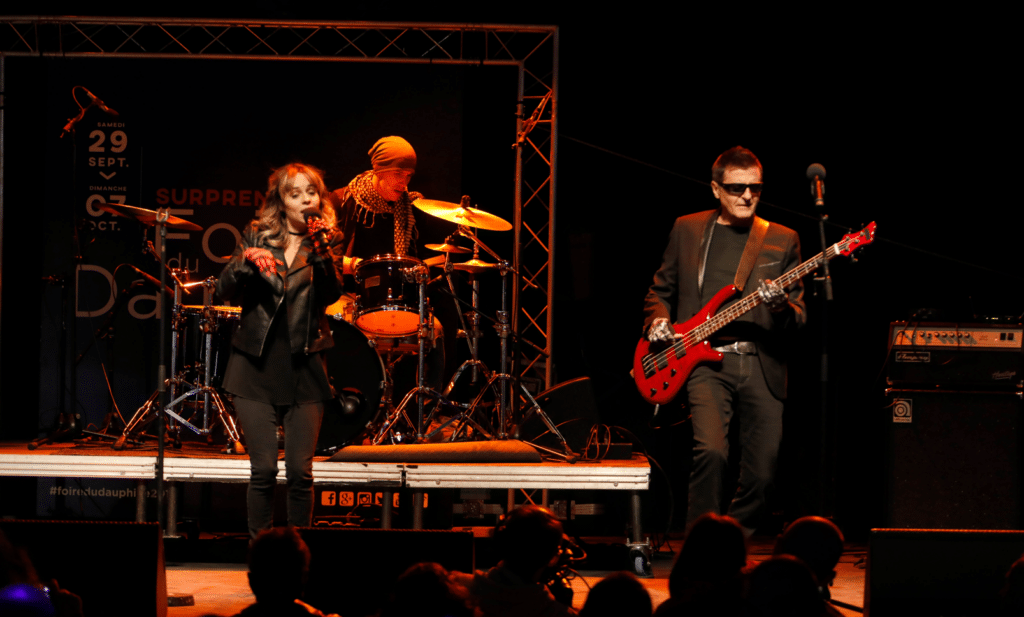
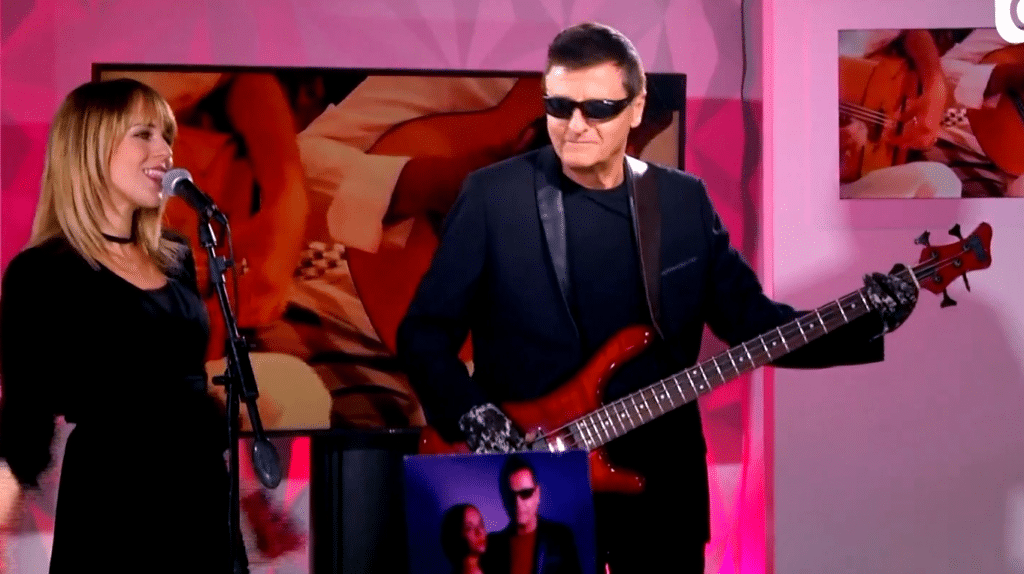
Live “TV Grenoble”
2019
Say good bye
In 2019, with the company “Ligne 10”, we released the video “Say good bye” by the group W.Y.L accompanied by the album entitled “With your love” comprising 10 songs that I composed.
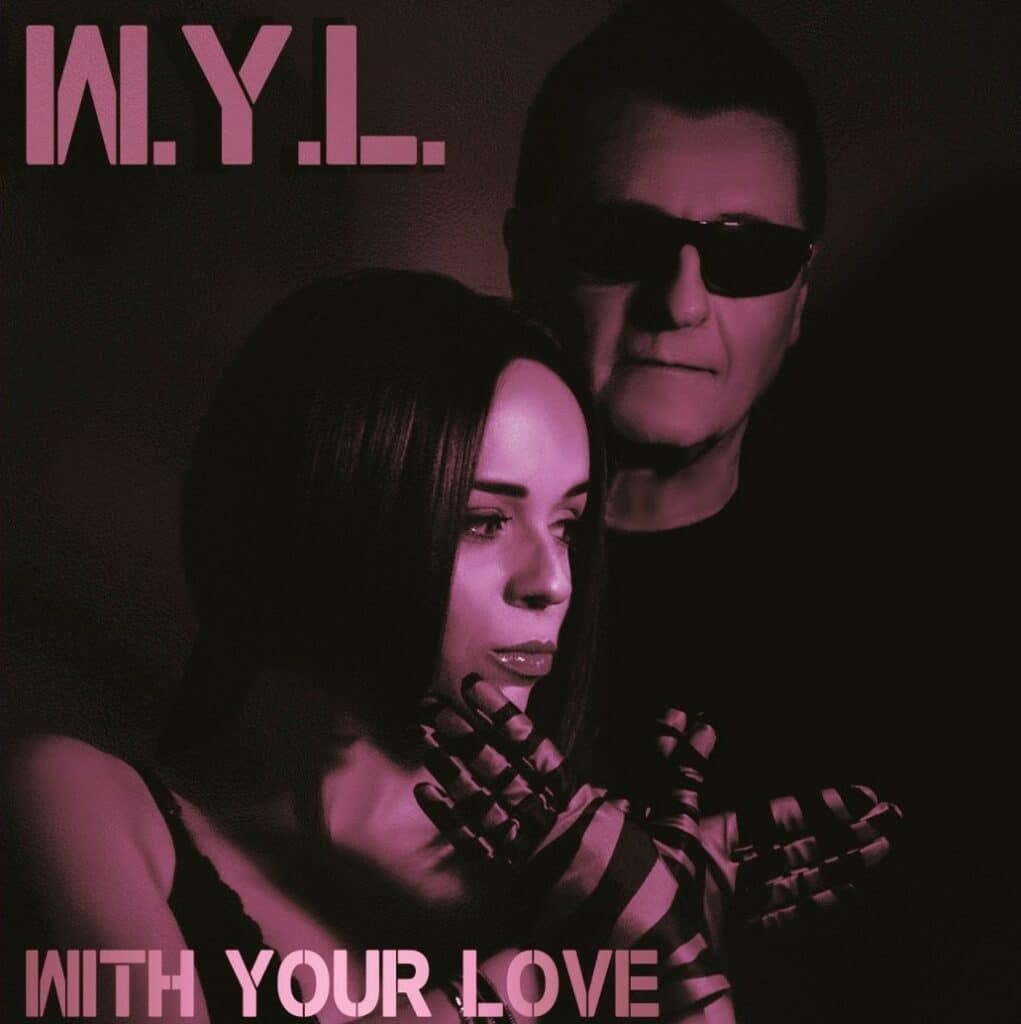
- Production : LIGNE 10
Philippe Girard-Buttoz, Antoine Mucciante, Patrick Charra and Philippe Hernandez - Recording and production : Christian Morfin
- Label : Moonlight-Mainlight / Believe
- Format : CD Maxi
- Country : France
- Release date : 2019
- Composer : Philippe Hernandez
- Author : Laura Ajello
- SOMEDAY
- NOBODY’S FRIEND
- WHILE
- SINGING MY LIFE
- CARINA
- STRANGER IN THE TRAIN
- FAR AWAY
- WORLD OF YESTERDAY
- LISTEN TO HIM
- SAY GOOD BYE
Story-France-Philippe Lawrence
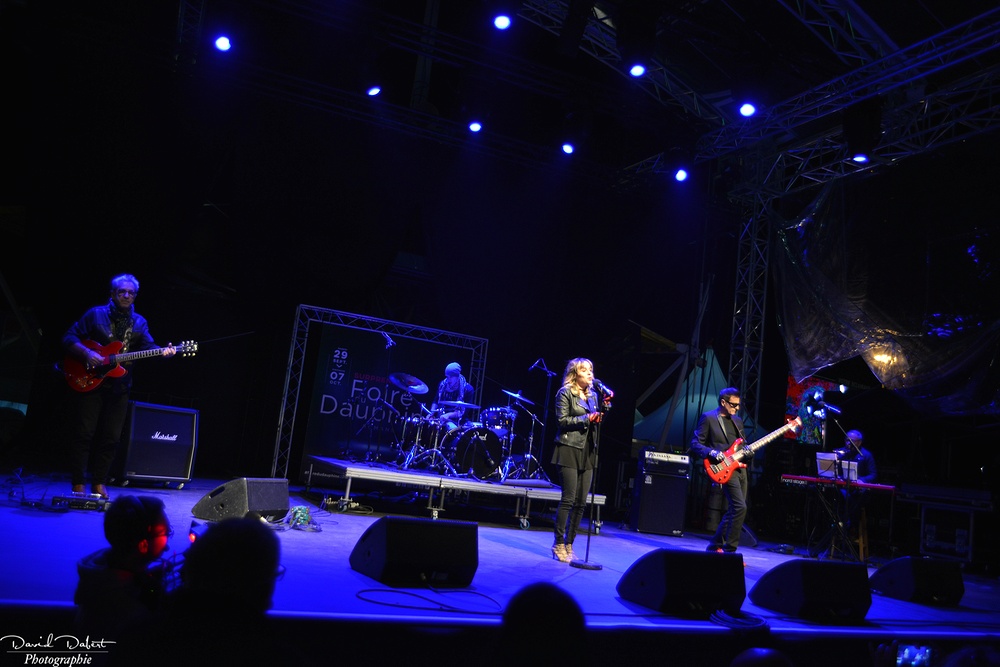
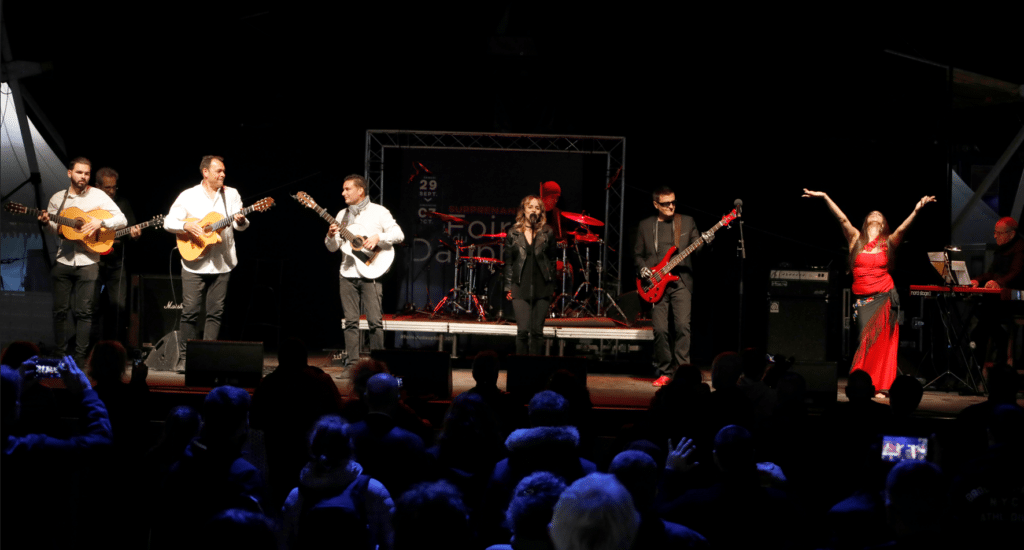
W.Y.L and his guests “Fuego de Rumba
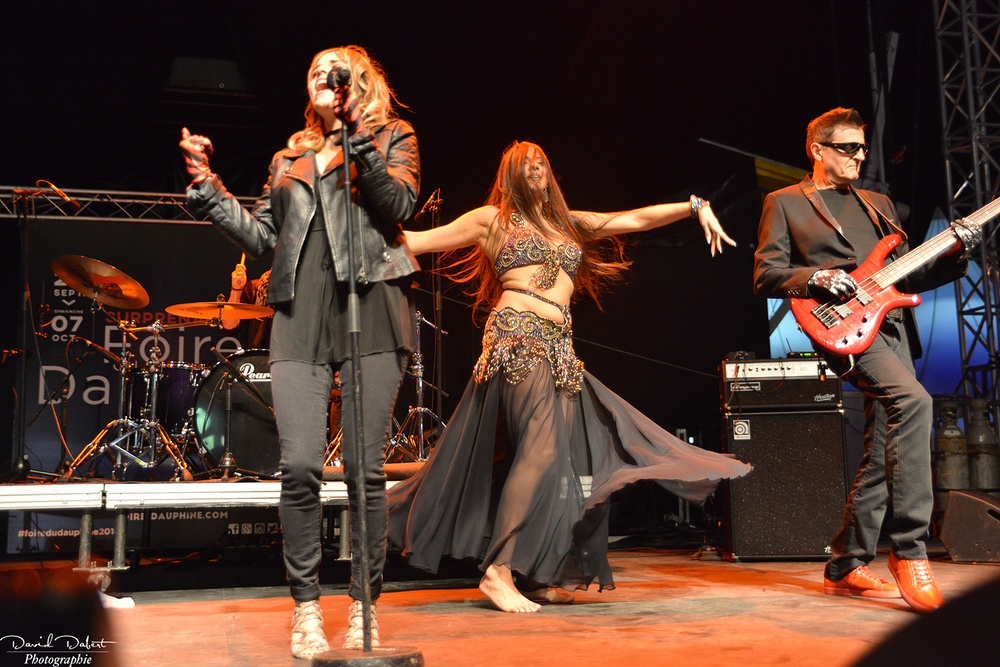
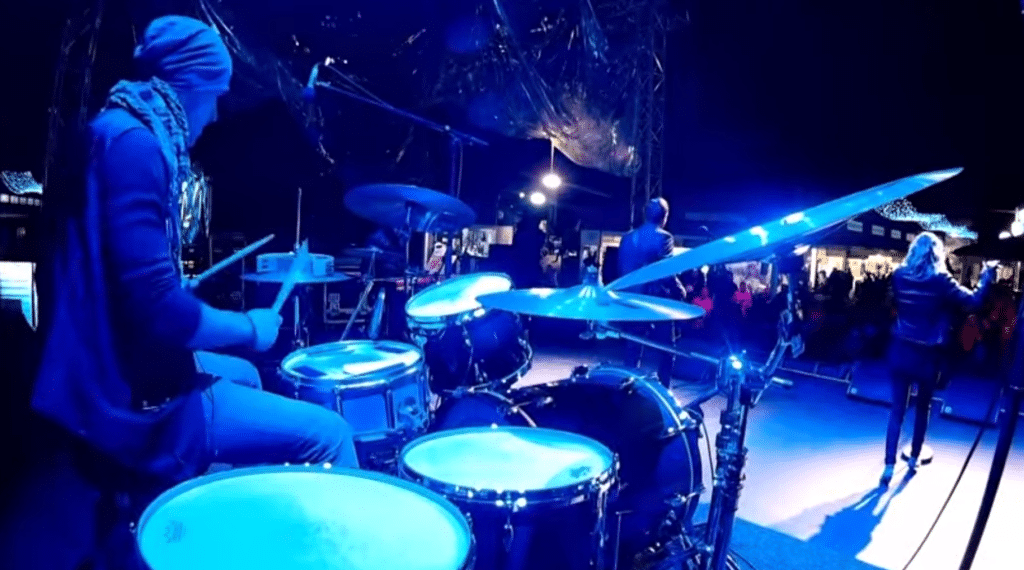
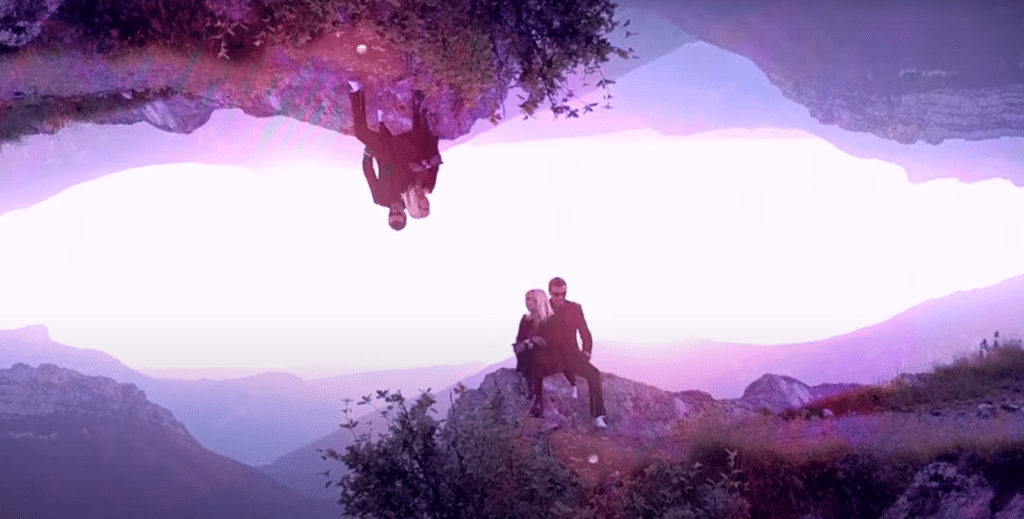
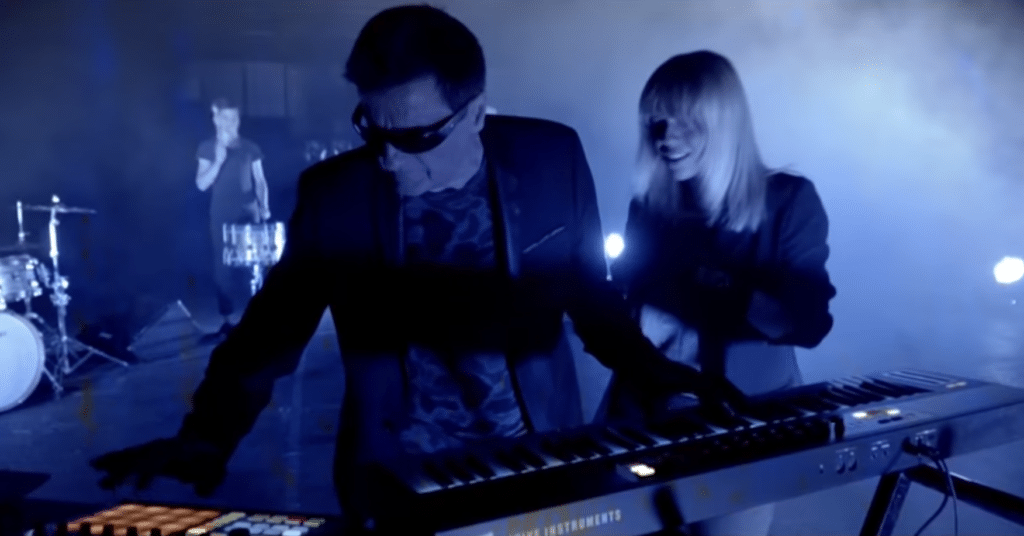
Other memories
Story-France-Philippe Lawrence
